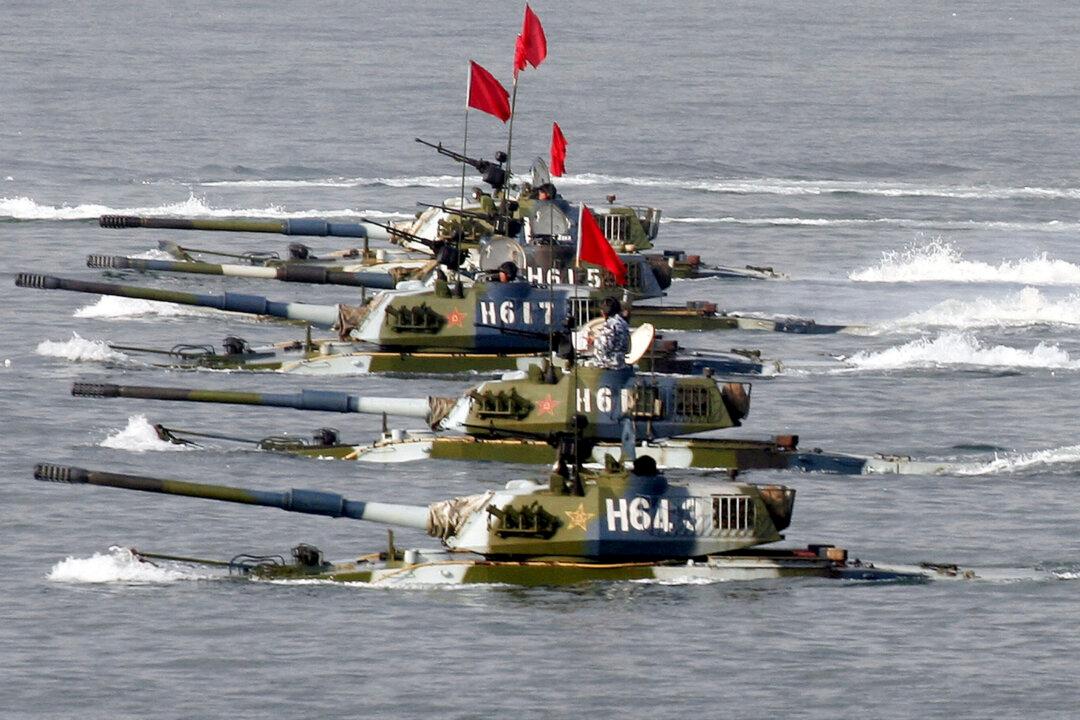The Chinese Communist Party (CCP) could use civilian vessels to sustain an invasion of Taiwan and subsequent war, according to one expert.
The military wing of the CCP, the People’s Liberation Army (PLA), is sometimes assumed to lack the outright amphibious capability required to logistically sustain an invasion and occupation of Taiwan. And there is some ambiguity as to what extent China’s military is developing its amphibious capabilities.




